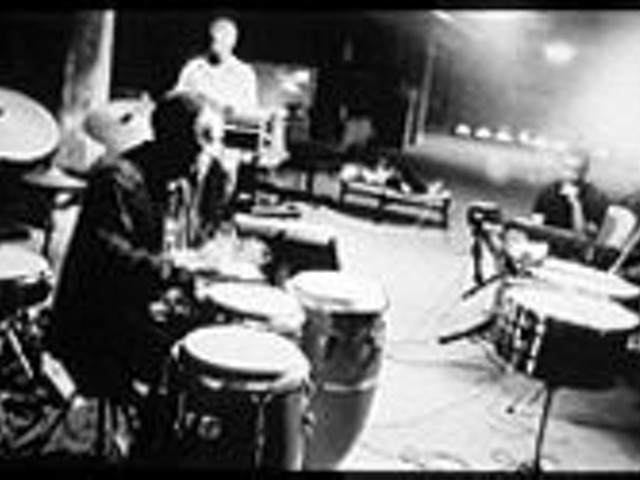"There's no such thing as keeping your house when the foundation is gone. I'll make that clear. The foundation is the blues and gospel. The only American music and sound that's out there, except if we were talking about the natives. But the blues and gospel was created by the blacks. It was created over here. Now, we had things over in Africa, but we couldn't bring them. It wasn't allowed. So we had to create different sounds, different tones, different versions of what we were doing. So it's about the only true American-created thing that's out there. Other nationalities were free to bring whatever they had over here with them, and nothing changed. We had to change it. So the blues and gospel was something that was hard to get a certain class of people to look at. And I don't know, but I would say that the reason at that time, was to ignore the blacks and don't accept anything that they should get credit for. But change is beautiful."
Change is beautiful, but so's history, as is tradition, and if you're talking about the history of St. Louis, and how we got from there to here, the man you need to listen to is Henry Townsend, crown prince of the St. Louis blues. He made his first recordings in 1929, played around town with not only this city's masters of the early blues sound -- Roosevelt Sykes, Walter Davis -- but some of the greats of blues in general (Sonny Boy Williamson, Robert Johnson, Big Joe Williams, Memphis Slim, Muddy Waters).
In celebration of Henry Townsend's 90th birthday on Oct. 27, Webster University will be featuring two films: On Friday, they'll screen Kathy Corley's documentary That's the Way I Do It: The Life and Times of Henry Townsend; on Saturday, it'll be Robert Mugge's Hellhounds on My Trail: The Afterlife of Robert Johnson. Townsend and longtime collaborator Ron Edwards will perform on Friday with blues singer/guitarist Alvin Youngblood Hart, and Hart will perform again the next evening. It'll be a good time to catch up on your St. Louis musical history, starting from square one.
Even more impressive, though, is the newly published A Blues Life (University of Illinois Press), a book devoted to the recollections of Townsend. Over the course of the past decade, local blues historian Bill Greensmith interviewed the musician, resulting in dozens of hours of tapes that Greensmith then painstakingly transcribed, edited and placed in a narrative format. The result is a vision of the St. Louis century, one that captures the essence of black life in the city in the '20s through the '60s, as seen through the wonderfully rambling eyes of one man.
Here's Townsend on playing with Robert Johnson: "To me Robert Johnson was an average kind of guy. He was quiet -- he'd talk if you talk, he wasn't gonna increase the conversation. He'd answer questions you'd ask the quickest way he could and get through with it. He wasn't like I've heard people say -- he wasn't women crazy at all. He didn't pay the women no more attention than he did the men. All the gals were like they were to every other musician: they were breakin' down, but it didn't seem to go to his head."
During a recent conversation, Townsend was pleasantly talkative, even though he had a cold ("I caught me a cold. I work pretty hard, and sometimes that can cause it"), and patiently, thoughtfully answered any questions that came his way (the opening sermon was a product of that conversation). He's got 90 years' worth of memories locked tight in his head. He remembers details, and the whole of St. Louis is better for it. Says author Greensmith on the process of creating A Blues Life, "He's got an amazing memory. He'd rattle off some incident that happened in the late '20s, and then, when I was fact-checking and researching it, sure enough, he was not only right on about the facts, but he'd hit the correct date by a matter of days."
Despite Greensmith's herculean task of creating order from the chaos of such a pile of memories, the final product is a smooth read; though many of Townsend's recollections are obviously based around his "blues life," the book nonetheless captures the essence of early- and mid-century St. Louis, and as a result, anyone curious about the old city should take note.
BB's Jazz, Blues & Soups is hosting a huge celebration on Saturday, Oct. 30, featuring a litany of St. Louis musicians -- Bennie Smith, Oliver Sain, Arthur Williams, Tommy Bankhead -- along with Alvin Youngblood Hart and, rumor has it, Robert Junior Lockwood, stepson of Robert Johnson and master bluesman in his own right.
Townsend helped lay the foundation for all the American music you hear now, from hip-hop to punk, and, when asked whether he had any idea of the revolution he was helping create, his answer is simple: "I actually believed that -- deep down in my heart. I had chances to work with real renowned people that were way up high on the ladder, but I refused because I didn't want to. I wanted to stay with this. This is what I see, and this is what I want, and I couldn't quit. You got to keep going."





